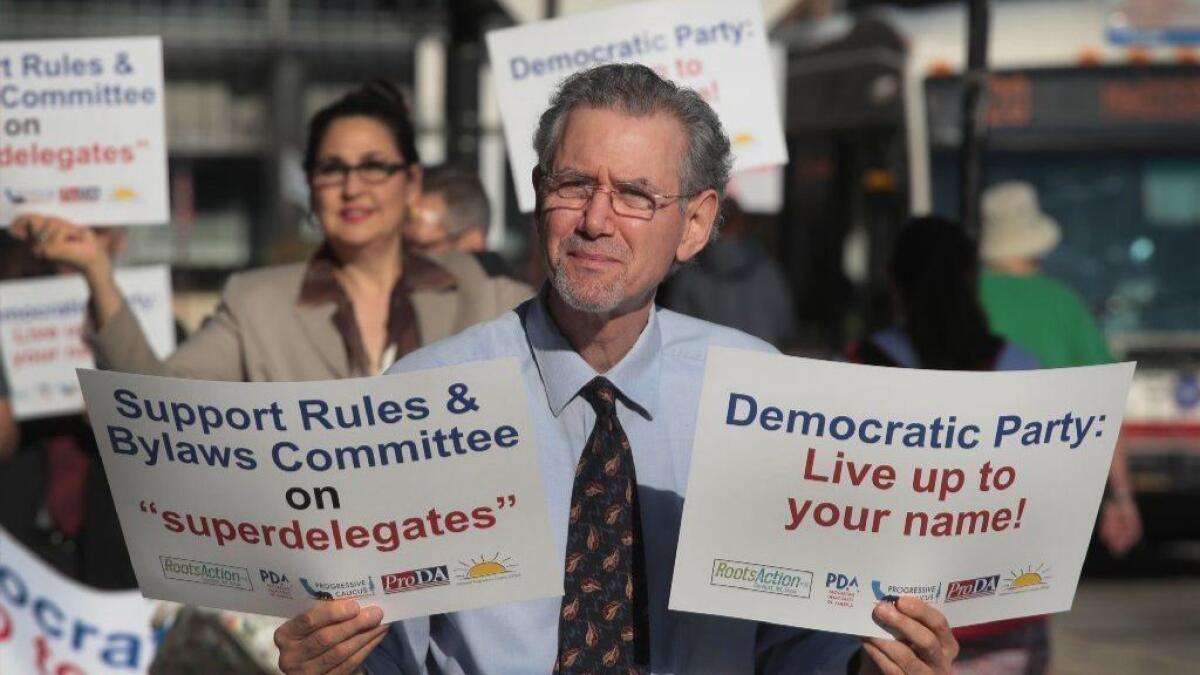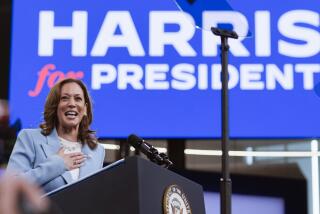Democrats dilute the power of superdelegates in historic party vote

Reporting from Washington — In a move aimed at getting past the acrimony from the 2016 presidential primary and unifying the party, the Democratic National Committee voted Saturday to dramatically reduce the role of superdelegates in choosing its presidential nominee.
At a party meeting in Chicago, DNC representatives voted overwhelmingly to dilute the power of the superdelegates, party bosses and other insiders traditionally given considerable weight in the nominating process. The new rules strip them of their votes during the first ballot during the party’s convention, when the presidential nominee is typically confirmed. It is a historic change, upending a process that has been in place for decades.
The superdelegates would, however, retain voting rights in subsequent rounds, leaving them to play a role in picking the nominee in the event of a contested convention.
The push for the reform was driven by backers of Vermont Sen. Bernie Sanders, who complained the superdelegate system helped rig the primary election in favor of Hillary Clinton, who had the support of most of the superdelegates. While those delegates were not ultimately key to Clinton winning the nomination, bitterness over the party rules has persisted.
Saturday’s vote was a victory for the left wing of the party, which demanded a more democratic nominating process.
“We voted today to return power to the grassroots,” the DNC chairman, Tom Perez, wrote on Twitter following the vote. “Our North Star from the beginning of this process has been to grow our party, unite our party, and earn voters’ trust.”
Sanders wrote on Twitter that he was encouraged by the move.
“Today’s decision by the DNC is an important step forward in making the Democratic Party more open, democratic and responsive to the input of ordinary Americans,” he wrote. “This has been a long and arduous process, and I want to thank @TomPerez and all of those who made it happen.”
The latest look at the Trump administration and the rest of Washington »
More stories from Evan Halper »
[email protected] | Twitter: @evanhalper
More to Read
Get the L.A. Times Politics newsletter
Deeply reported insights into legislation, politics and policy from Sacramento, Washington and beyond. In your inbox three times per week.
You may occasionally receive promotional content from the Los Angeles Times.











